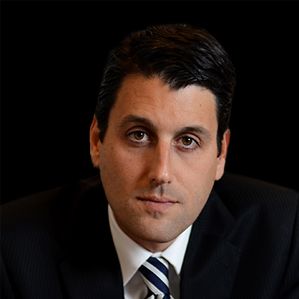
I Will Never Retire
-
 Jared Dillian
Jared Dillian
- |
- April 25, 2019
- |
- Comments
The inspiration for this week’s 10th Man came from Tyler Cowen’s book excerpt in the New York Post, titled “Why Capitalism Is Good For Your Health.” I suggest you read it.
I am never going to retire. Oh sure, I say that now, but what about when I am 80? No. I will never stop working.
Every morning, I get out of bed when the alarm goes off, take a shower, and put on dress clothes (a suit, usually) and drive 35 minutes to work in an office that I rent in an office building.
I write newsletters. I can just as easily do that on the couch, in a pair of gym shorts, with a cup of coffee. Why spend over an hour a day commuting, and dealing with all the brain damage of putting on a suit and going to work?
Because I like work!
In short, if it doesn’t feel like a job, then it’s not a job.
The reality is that I am the furthest thing from a working stiff. I travel plenty, I make my own schedule. But unless I feel like a working stiff, it doesn’t feel like I am working, or being productive.
Work is good. Of course, if you go back to the 1970s sci-fi flicks (like Logan’s Run), in the future, nobody has to work. That’s one prediction that never came true. This is the future, and here we are, still working. Maybe a little less, but not much. We have more time-saving inventions, but we mostly use the extra time to work more.
Democratic presidential candidate Andrew Yang says we should all get $1,000 a month so that work can be optional. As the UBI people like to say, that will free us up to pursue our dreams.
That is a terrible idea. People are very, very bad with unstructured free time. And human nature being what it is, people don’t pursue their dreams without a little bit of motivation. One form of motivation might be not knowing where your next meal is coming from. In a society that is capable of producing so much wealth, that seems downright undignified.
|
The Benefits of Work
A year or two ago, I wrote a piece where I said that idleness is so bad for individuals (and society as a whole) that top-down command-and-control make-work programs would be preferable to basic income.
That’s how much I believe in the benefits of work. And according to Tyler Cowen: “Earning and spending money is fun, and many jobs are more rewarding, more social and safer than they used to be. Even with much higher living standards now than in the immediate postwar era, Americans still basically want to stay on the job.”
Spend some time at home playing video games and within a few months, you will be utterly convinced of the meaninglessness and pointlessness of life. Multiply that by 100 million people, and you have a big problem.
It’s why we care about unemployment so much. Again, according to Cowen, involuntary unemployment is one of the most traumatic things that someone can experience—even worse than divorce. It has debilitating psychological effects. Getting people back to work after a recession is a top priority. Of course, lengthening unemployment benefits has the exact opposite effect, but not a lot of people in D.C. know much about economics.
To my earlier point, I am not a big fan of retirement. I have seen some bad retirements. Situations where people didn’t really have a plan, and ended up spending a lot of time at home with cable news on at top volume.
Like what you're reading?
Get this free newsletter in your inbox every Thursday! Read our privacy policy here.
Unstructured free time isn’t just bad for 20-somethings, it’s also bad for 70-somethings.
We have all heard stories of someone who had a tremendous career with lots of responsibility, then they retire and they’re dead within a few years. If you don’t have a purpose, there aren’t just psychological effects, there are physical effects, too.
One of the reasons I am not too concerned about Social Security “being there” for me when I retire is because I am not going to retire! For sure, I expect my business to be smaller and my responsibilities to be reduced, but I will never, ever stop working. I fully expect to send my last 10th Man from the hospital.
subscribers@mauldineconomics.com

 Jared Dillian
Jared Dillian
